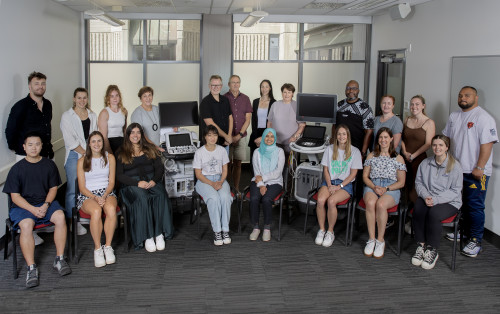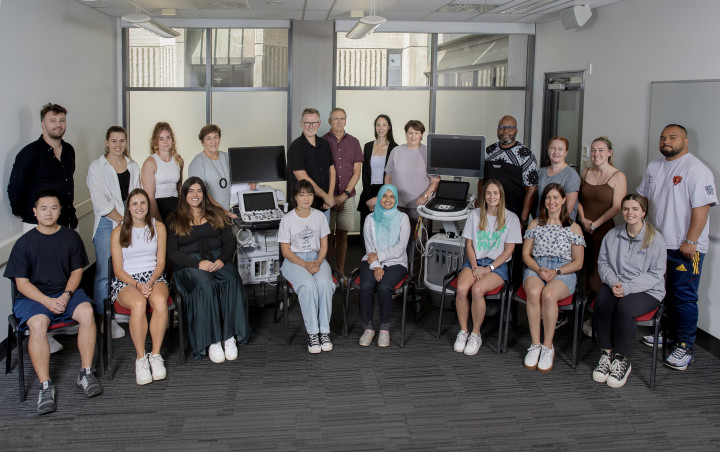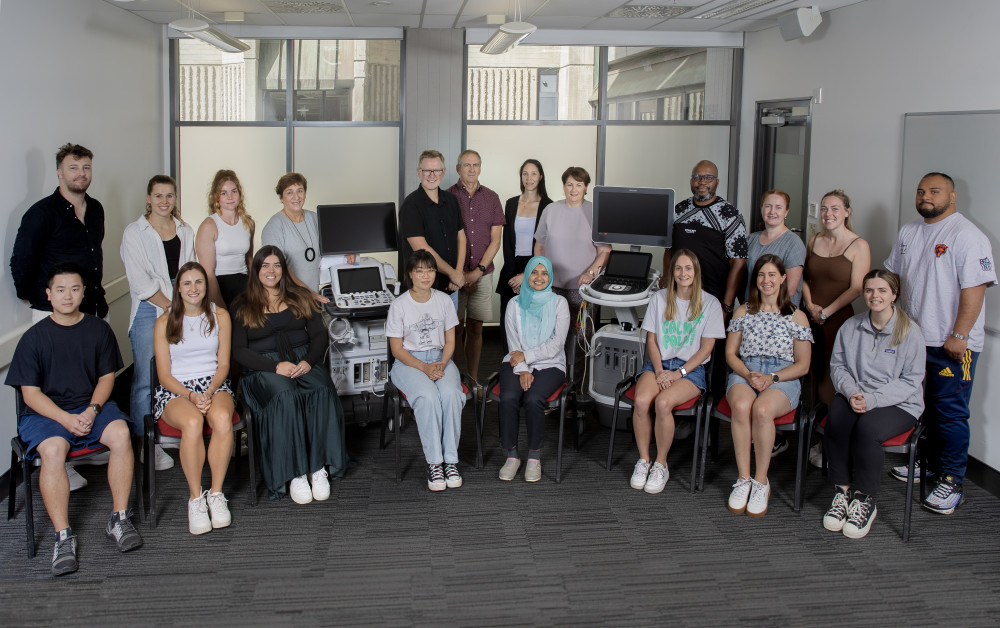


Faculty of Medical and Health Sciences, the University of Auckland (FMHS) staff, Health New Zealand | Te Whatu Ora interim National Chief Allied Health, Scientific and Technical Lead, Sue Waters (back row, 5th from right) and cardiac sonography student cohort.
Caption
Caption
Faculty of Medical and Health Sciences, the University of Auckland (FMHS) staff, Health New Zealand | Te Whatu Ora interim National Chief Allied Health, Scientific and Technical Lead, Sue Waters (back row, 5th from right) and cardiac sonography student cohort.
Until now, New Zealand has not had a domestic training programme for cardiac sonographers, which has meant students have had to go overseas for training, and Health New Zealand | Te Whatu Ora has had to recruit overseas talent. This has proved costly and created potential barriers to training.
Cardiac ultrasound plays a critical part in the diagnosis of heart conditions for patients.
In response, Health NZ has provided seed funding towards a new programme in cardiac ultrasound training, which is now underway at Waipapa Taumata Rau, University of Auckland. The development of this programme is a partnership between the Health and Education sectors.
Sue Waters, interim National Chief Allied Health, Scientific and Technical Lead for Health NZ says this initiative is exciting as it will fill an important gap in New Zealand’s health workforce and ultimately help patients gain better access to the care they need.
As part of the Health Workforce Plan, Health NZ is seeking to increase training numbers in these professions, which includes cardiac ultrasound. To achieve this, the Plan outlined Health NZ would seed-fund and invest in new training programmes and pathways.
“Having a course in New Zealand helps ensure we can train our own domestic workforce and improve how Māori and Pacific peoples are represented in our cardiac sonography workforce,” says Waters.
University of Auckland Dean of Medical and Health Sciences, Professor Warwick Bagg, says the University is committed to offering training pathways that support the health needs of the country and was pleased to receive support to deliver the programme.
“We are eager to do what we can to bridge the health gaps the country is facing. The University of Auckland has a proven track record in providing medical training.
“Cardiac ultrasound is critical to patient care. With this specialist training now available locally, we’re upskilling the workforce and improving the quality of cardiovascular care Kiwis receive.”
The two-year programme was developed by, and will be delivered through, the Department of Anatomy and Medical Imaging located within the University’s School of Medical Sciences.
Head of School, Professor Paul Donaldson says the programme has space to train at least 15 students a year. Those enrolled will come from a variety of health professional backgrounds.
“Cardiac ultrasound training is an exciting and purposeful career pathway for qualified health professionals who are currently in Nursing or other allied health, scientific and technical roles to consider.
“The programme spans two years and includes both clinical and academic components that enable students to gain the specialist, and sought-after, knowledge and practical skills needed to evaluate a patient’s condition and make a diagnosis.”
The first cohort of students attended an in-person introductory course covering the basics of cardiac ultrasound at the University’s Grafton campus in February. The rest of the course will be taught online to allow students from across the motu to apply for training. All students in the first cohort are fully employed by Health NZ as they undertake their training.
ENDS
Media contact: hnzmedia@health.govt.nz